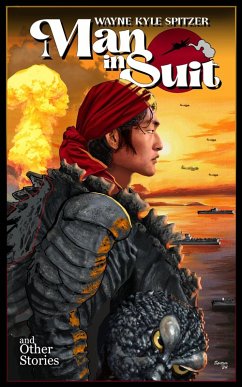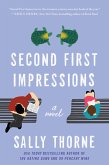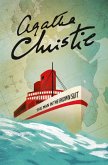There were two things that Sakura insisted on from the start: the first was that every shooting day be concluded by crossing an enormous red number off his enormous mobile whiteboardwhich he had rolled out onto the soundstageand the second was that the Kaijira Military March, which had originally been composed for the Japanese Imperial Army during WWII, be looped and played from huge loudspeakers every time we were on setto the point that I could hear it in my head virtually everywhere I went: in the commissary, using the restroom, on the train going home, while I was sleeping. Especially while I was sleeping.
It was, in a sense, as if we'd gone off to waras if the blue screen material undulating before the turbines (when we shot in the outdoor tank) were in fact our banner, and Sakura's barking of "Hajime!" our battle cry. Indeed, it was as if the sounds of our effortsthe clack-clack of the slate and the coordinated shouting of the crew, the grunting of the actors, the crackle of the pyrotechnicshad merged to become a rhythm and a cadence of their own; a mantra as guttural and precise as any karate matcha meditation. Nor was the war comparison purely hyperbolic: it's often been said that war is not just a new experience but a new worldand this, with its bloodbath of sweat and rubber and black powder smoke, its hot lights and shockingly physical fights, was nothing if not that, at least to a kid from West Lafayette, Indiana; a kid whose previous experience with kaiju consisted mostly of watching them battle it out on a 16-inch Zenith color television whilst eating Frosted Flakes and collecting shag carpet rug burns.
And yet as the days passed and the numbers were crossed off I came to understand not just the outlandishness of what theythe suit actorswere doing but the familiarity of it; for what it ultimately boiled down to (especially with regards to what was required of them physically) was American pro wrestlinga realization that made me not just fall in love with them all over again but to really study them, to try to get inside their suits, to imagine what it was like to actually be them.
How hot it must have been, for one, how difficult to breathe. How burdensome the suit must have become after having been essentially locked inside it for several hoursthe sheer weight on one's bones and musculature, the stench of latex and one's own body odor, the impaired hearing and vision, the claustrophobia! I couldn't help but wonder how Sakura had managed to play the monster so late into his careerwell into his 50snor what the old man was presently thinking now that he'd traded his fur-lined flight helmet for a bullhorn and steered toy airplanes instead of real ones.
But mostly I focused on Kikuta, who soldiered on valiantly despite the burden of two equally great weights: the Kaijira costume itself, which was the most cumbersome of them all, and Daigo's attempt to turn a carpool with Izumi into a stealth courtshipa ploy so obvious that she herself was blind to it. Nor had a modest raise in his pay changed anything; he was still riding the same crusty moped while Daigo drove his Z and talked about upgrading, which by the second to last day of the shoot he had, to a brand-new Mazda Miata and a rear plate that read: MECHA-1.
And it might even have remained that wayat least long enough to finish the shootif Kikuta hadn't opened his pay envelope as the pair drove away and realized he'd been given the wrong check ...
Dieser Download kann aus rechtlichen Gründen nur mit Rechnungsadresse in A, B, CY, CZ, D, DK, EW, E, FIN, F, GR, H, IRL, I, LT, L, LR, M, NL, PL, P, R, S, SLO, SK ausgeliefert werden.









